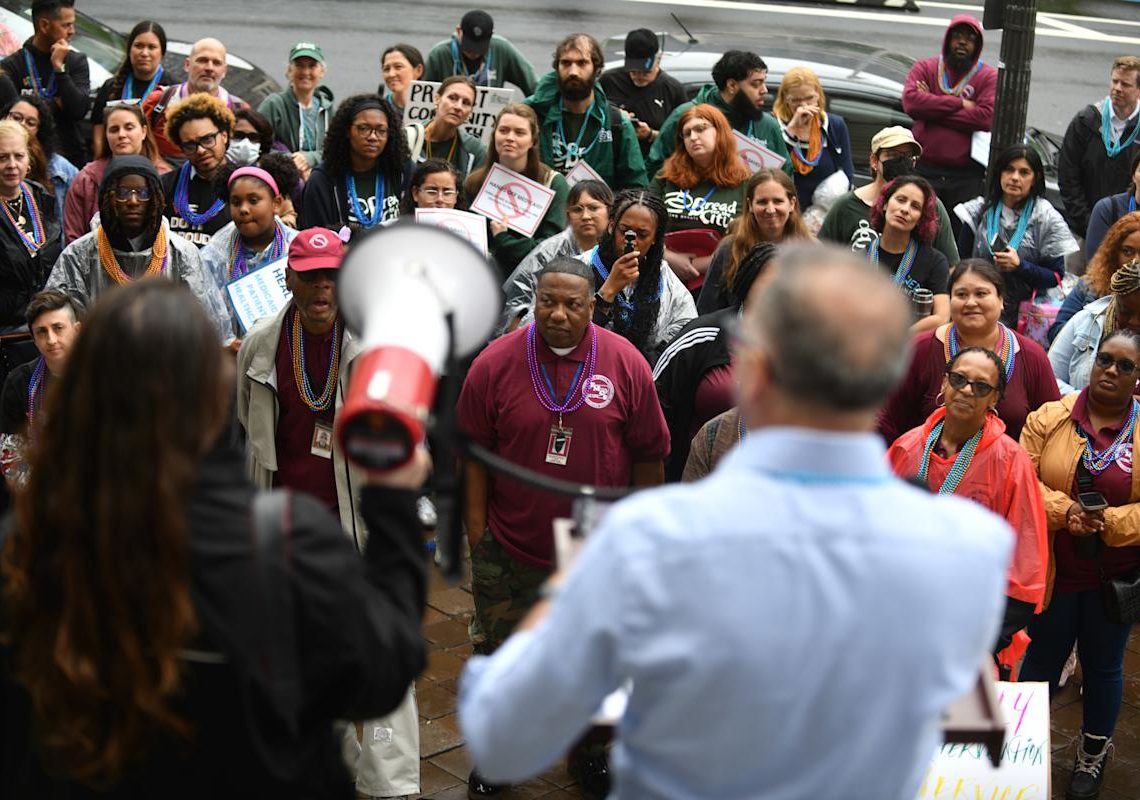Senate Republicans are preparing to slice deeper into Medicaid to finance President Donald Trump’s agenda, proposing legislation that analysts say could deal a greater financial blow to hospitals and result in millions more uninsured Americans.
The measure reflects Republicans’ willingness to cut the nation’s safety-net health insurance program, despite qualms expressed by some moderates and populists within their ranks.
Last month, House Republicans passed massive tax-and-spending legislation projected to result in 7.8 million fewer Medicaid enrollees. The Senate Finance Committee’s revisions to the bill released Monday could prompt even steeper coverage losses, sharply reining in a Medicaid financing maneuver that hospital groups say would slash payments to their facilities.
“The Senate just made a bad bill worse,” Chip Kahn, CEO of the Federation of American Hospitals, said in a statement. “Rural communities would take the hardest hit, with struggling hospitals compelled to face difficult decisions about what services to cut.”
Rural areas disproportionately rely on Medicaid, and their hospitals are often the first backstop for patients without health coverage. Hospital networks said they might reduce pediatric, maternity or behavioral health services; end telehealth programs; close rural facilities; or enact layoffs if the Medicaid cuts become law, in a recent member survey by the American Medical Group Association before the Senate bill was released.
These changes would partly be the result of caps on provider taxes, an unusual example of a tax many hospitals are happy to pay. States charge extra taxes to medical providers – mainly hospitals, nursing homes and facilities for people with intellectual disabilities – and in return give the providers higher Medicaid payments. That brings in more federal matching funds, which are pegged to state payments.
The taxes, which some conservatives have dubbed a form of “money laundering,” emerged in recent weeks as a top sticking point among Senate Republicans.
The Senate legislation would throw a huge wet blanket over this practice. It says states must gradually reduce provider taxes on hospitals until they are no higher than 3.5 percent of a provider’s net patient revenue. Right now, that threshold is roughly 6 percent – and the House bill caps it at that rate.
At the same time, the Senate bill breaks with the House plan by exempting from the cap the two other main providers subject to the tax: nursing homes and facilities for people with disabilities.
The proposed cap would affect 18 states, including New York, Virginia and Arizona. Six red states with high provider taxes would be exempt because they did not expand Medicaid to cover childless adults with low incomes: Texas, Kansas, Tennessee, Alabama, Mississippi and South Carolina. But three states with Republican senators – Missouri, Iowa and Indiana – would be affected.
The cost of this move to hospitals isn’t immediately clear. But they stand to lose $321 billion over the next 10 years under the House version and would face another $63 billion in costs from serving a larger uninsured population, according to an analysis by the Urban Institute and the Robert Wood Johnson Foundation. Hospitals collected $262 billion from Medicaid in 2022.
Associations representing hospitals slammed the Senate legislation and called on senators to push back on the cuts.
Ellen Kugler, executive director of the Alliance of Safety-Net Hospitals, said the Senate bill would “bottom out resources that safety-net hospitals need to keep the doors open to serve their communities.”
The Senate is aiming to pass its bill by July 4, a deadline set by Trump. It would then need to be reconciled with the House version and approved in both chambers before becoming law. But the path forward is far from clear, as Senate Republicans can lose only three GOP votes and still pass their bill.
Americans have mixed feelings about the budget bill, with a plurality of 42 percent opposing “changing tax, spending and Medicaid policies,” according to a recent Washington Post-Ipsos poll. Nearly two-thirds said the projected Medicaid enrollment drop from the House bill is unacceptable.
It’s not just the provider tax caps that have hospitals up in arms. The Senate bill also would pare back two other funding streams for hospitals caring for larger Medicaid populations and providing better-quality care.
Sen. Josh Hawley (R-Missouri) said Tuesday that he is concerned the Senate proposal would hurt poor Missourians and lead rural hospitals to close, and he said it needs a lot of work before he could vote for it.
“I don’t think they understand politically who our voters are,” Hawley told reporters, referring to Senate Republicans backing the funding cuts. “But also, setting aside the politics of it, it’s just not the right thing to do to shut down a bunch of rural hospitals to pay for tax cuts.”
But other Republicans sounded open to the Medicaid cuts after a Tuesday lunch meeting with Mehmet Oz, administrator of the Centers for Medicare and Medicaid Services. Oz told Republicans the Senate bill would merely slow Medicaid growth, not reverse it, said Sen. Shelley Moore Capito (R-West Virginia).
“I believe what Dr. Oz said,” Capito said when asked whether she will support the Senate legislation, adding that she needs to “talk to my folks in West Virginia” before committing to vote for it.
Capito and West Virginia’s other senator, Jim Justice, are among the Republicans who had expressed resistance to cutting Medicaid. West Virginia, which would have to scale back its tax on ambulance services under the Senate bill, has one of the highest share of residents on Medicaid and relies more heavily on federal dollars than most states.
Justice told reporters on Tuesday that the provider tax caps would “hurt” but that “it may very well be you’ve just got to hold your nose on part of it and get through it.”
After the lunch, Oz brushed off concerns about the bill’s changes to provider taxes after meeting with senators, telling reporters that he does not believe they would hurt rural hospitals.
“The framework of addressing the legalized money laundering with state-directed payments and provider taxes must be in this bill, it should be in this bill, and I believe it will be in the bill,” Oz said.
Health care experts generally agree the funding maneuver isn’t the ideal way to boost federal funding for hospitals and other Medicaid providers. Former CMS administrator Chiquita Brooks-LaSure, who served during the Biden administration, said there’s “an argument” against the provider tax.
“If it were up to me, I would change the way states can raise their state share,” she said.
But there’s little support in a Republican-controlled Congress for hiking Medicaid spending in lieu of provider taxes.
Other Senate changes to the Medicaid proposal would expand requirements for some beneficiaries to work, train for a job or volunteer to include parents of older teenagers.
Senate Majority Leader John Thune (R-South Dakota) acknowledged some members of his caucus are seeking changes to the Senate measure.
“We continue to hear from our members specifically on components or pieces of the bill that they would like to see modified or changed or have concerns about, and we’re working through that,” Thune told reporters.
– – –
Daniel Gilbert, Theodoric Meyer and Liz Goodwin contributed to this report.
Related Content
Trump is as unpredictable as ever, even when faced with war
Field notes from the end of life: My thoughts on living while dying
He’s dying. She’s pregnant. His one last wish is to fight his cancer long enough to see his baby.
The post Senate Republicans propose deeper Medicaid cuts. Here’s what that means. appeared first on Washington Post.




